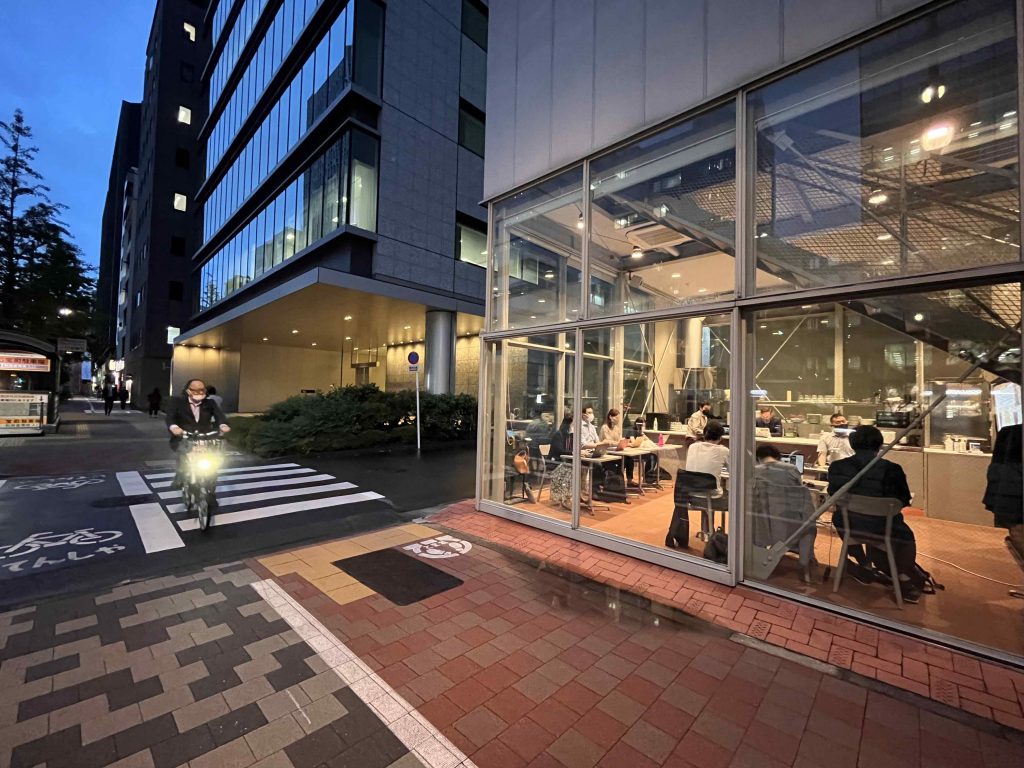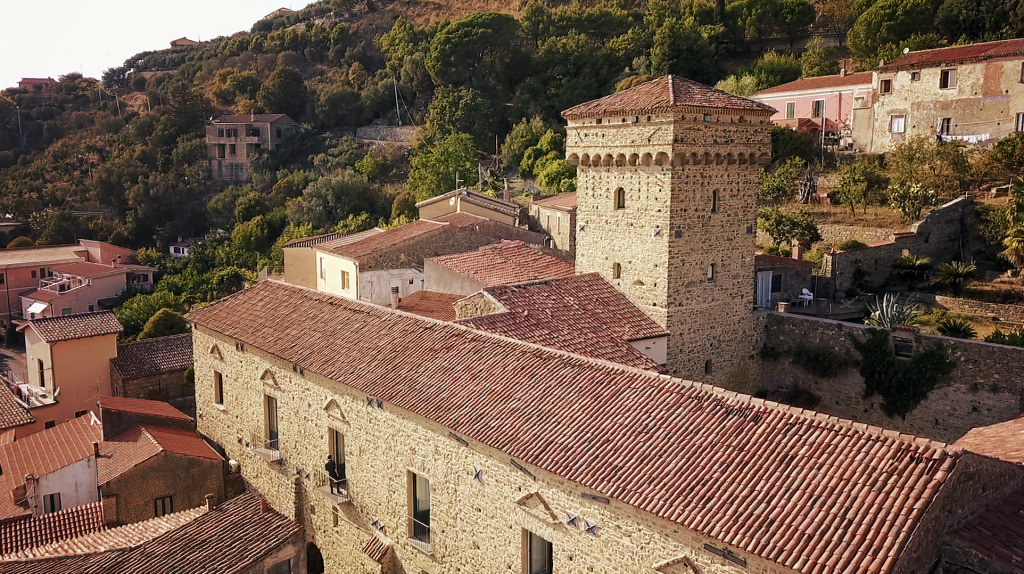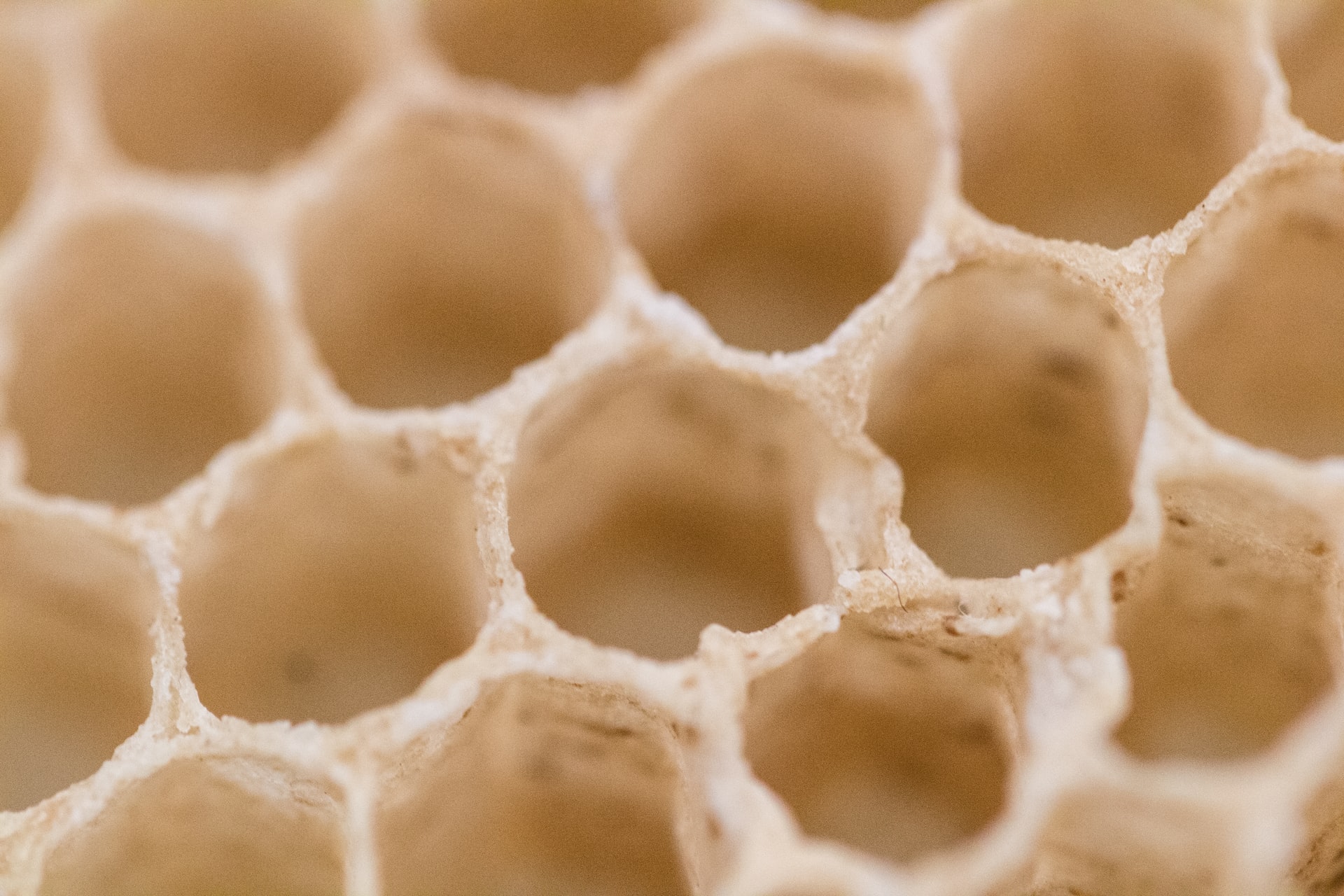It’s early February in the bustling downtown neighborhood of Kyobashi, Tokyo. The room we are sitting in, the Future Food Institute’s Living Lab in Japan, has a large open space kitchen and is surrounded by floor to ceiling windows that seem to invite curious passers by to look in.
Working at the kitchen counter is food innovation specialist Francisco Alvarez Ron who is busy preparing a tasting of lab-grown meat and pasta made from barley waste. The Future Food Institute, an international organization based in Italy, Japan and the United States, holds events here regularly as part of their efforts to build bridges between countries and bring more sustainable practices to the food industry through education and innovation.
As the food is being prepared, Sara Roversi, president of the Future Food Institute, addresses the group of twenty or so people – from entrepreneurs to urban farmers and professors – attending the event.
“The food system has to be seen as an ecosystem,” says Roversi. “From lab grown meat and pasta made with barley waste to promoting the Mediterranean diet as good for people and the planet, rethinking our relationship with food is not an abstract concept but an approach that is made up of many small decisions that take into account the diversity and plurality of the needs and solutions that are already present around the world.”

What does food mean to you?
For me, food is a way of accessing and connecting to beautiful aspects of life, such as traditions, culture, friendship and sharing. It’s part of my identity as an Italian and a powerful tool with which to explore and create culture, build bridges, and nourish relationships.
But food also reveals the interconnected nature of some of humanity’s greatest challenges, including health, pollution, climate change, soil erosion, water scarcity and so on.
What needs to change for the food system to be part of the solution to these interconnected issues?
Transforming the food sector so that it has a more sustainable approach is such a complex process that it needs an ecosystemic approach that embraces diversity.
For me, this transformation starts with education as an ongoing process across all age groups whilst constantly kicking open new doors because there is no one solution. The challenges we face are so diverse that we can’t just rely on a single solution, and we must build an ecosystem around education, community development and innovation that focuses on transformative projects.
Something I have heard you talk about is the integral ecological approach. What is this, and how does it apply to the food system?
I first came across the idea of integral ecology back in 2015 when reading Pope Francis’ Laudato si’, and it brought me to properly reflect on the idea that everything is interconnected.
An integral ecology is about realizing the profound interconnection between political, economic, human, environmental, social and cultural pillars, something that, unfortunately, is often lacking in the approach to sustainability of many big corporations. There is a tendency to focus on sustainability without considering the consequences for human rights, the social and health impacts and so forth.
Although companies have understood that they need to take actions towards being more sustainable, they sometimes make decisions that only consider the environmental perspective whilst foregoing other aspects. Unfortunately, this approach can actually lead to a boomerang effect.
At the Future Food Institute, we started implementing an integral ecological approach as a framework for development, therefore approaching sustainability in a systemic way and creating a model that is going to be resilient and inclusive.
Is this systemic approach present in large intergovernmental processes such as those that played out at the COP27 in Egypt?
In the last five years or so, the systemic approach has grown immensely, and there is much more awareness of the bigger picture and not just single impacts. People are starting to look at what the impact on the entire ecosystem will be.
After attending the climate negotiations in Sharm El Sheikh, I read a lot of reports from the outside where many observers were not happy with the outcomes. But, having been behind the scenes, I felt that the level of engagement and approach was extremely positive and left me feeling optimistic.
Although these are difficult times, and there isn’t that much to feel positive about when it comes to rising temperatures and emissions, I do see that the systemic approach is growing in different industries, administrations and institutions. A huge effort to undergo change is underway, and although it may be too late, at least now, the mindset is changing.

There is a lot of talk about the role of technology as a bringer of solutions to climate issues. Is technology in the food system going to be a friend or foe?
People are often afraid of the unknown. For example, when we started talking about food innovation in a country like Italy – where people can be very focused on protecting traditions – it was seen as something that you had to fight against.
So, the first step is always to raise awareness. When people have access to knowledge and information, they are more likely to make the right decisions. From our perspective, the starting point is to give people that access by organizing conversations, conferences, hackathons, and all kinds of experiential opportunities. Understanding and experimenting to create experiences that can raise awareness.
For example, in 2014 we held an event with Mark Boston, the inventor of lab grown meat. We brought him to Reggio Emilia, a small town between Parma and Modena whose economy and local identity are grounded in meat production and cured meats. The talk with Mark was instrumental in starting a meaningful conversation with local people around lab grown meat and alternative proteins. It was a way of provoking reflection, critical thought, and interactions.
The event’s ripple effect was that we started to see local people, families, high school students, and even local entrepreneurs taking an interest in the topic. I strongly believe in these kinds of conversations, keeping them open to the community, sharing ideas and engaging in debates.
How important is it to have real-life, hands-on experiences for this knowledge growth to happen?
From our very first educational program at the Future Food Institute, we realized the value of our students, professors and guests interacting directly with the communities around them.
We designed our Master’s program and our bootcamps with a very experiential core. For example, the core part of our Master’s program was a mission called the Food Innovation Global Mission, where we would take 20 students around the planet for 60 days in 12 countries nonstop. If we wanted to learn about rice, we would go and visit the Thai government and Thai rice fields, feel the rice with our hands, talk with farmers, and understand their needs and challenges. From the field to the table.
No one was approaching research and education in this way. We started really exposing people to physical experiences, life experiences. Why? Because from the psychological perspective, we understand that if you can surprise people, this experience is going to be embedded in their minds forever.
If you want people to change, then it needs to be their own choice. This is the reason why we are still investing the majority of our energy in running training programs that are involved in the community, learning from experiences, learning from farmers, learning from industry players. This is also the reason why our Living Labs are crucial because they provide a space where we can post experiences.
What are Living Labs, and what kinds of events and interactions do they facilitate?
Living Labs are dynamic spaces where we host innovators and people who want to test their ideas and interact with the broader community.
In our Living Labs [which are currently found in Pollica and Bologna, Italy, and Tokyo, Japan ed.] we organize events and activities, join with local communities and test technologies and processes through things like hackathons and bootcamps.
What are the most exciting projects you are working on at the moment?
The most fascinating thing from my perspective is nudging transformation at the systemic level. The focus is on understanding how we can implement regenerative economy principles in our life and how much of this concept of regeneration needs to be present in everything we’re doing, from farming to consumption, we’re talking about something that is circular.
For example, we’re working a lot on the Mediterranean diet and demonstrating how it is good for human health and, at the same time, for the planet. At the end of the day, we implement our systemic goals in very specific initiatives and work with tangible things. It’s important to have the big framework but also to delve into the nitty-gritty.
Cover photo by Ivy Farm via Unsplash

Sara Roversi is the founder and president of the Future Food Institute. Sara sets the strategic direction and leads activity for the global Future Food ecosystem.
As a seasoned growth expert, she works with globally-recognized, high-profile think tanks on setting the agenda for the sustainable food industry.






